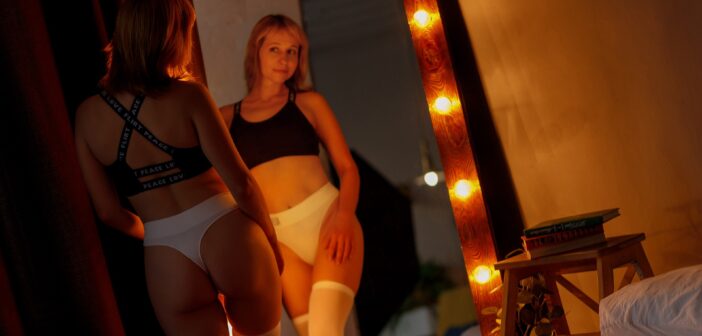The post was originally published in Russian on Startup of the Day. Alexander kindly agreed to republish what we think is of great value to our readers.
To keep your body fit, it is enough to exercise with a couple of hand weights that cost ten dollars each. It’s cheap, but it’s psychologically challenging – nothing motivates you, nothing pushes you forward, and you need to get up and get to work yourself. App Store and Google Play offer dozens of apps with sets of exercises, timetables, and virtual rewards for everyday practice without breaks. The prices range, but overall it’s still pennies. The next step is a Kinnect app for Xbox, like Just Dance, so that your hardware didn’t just cheer you up, but also ‘saw’ you practice and evaluated the quality of how you do the exercises. Not sure if those exist, but in theory they should.
In a rational person’s world, this is the top, the tech doesn’t allow for anything bigger, and the next step is to call a personal trainer or go to the gym. But for most people, this top is not enough to overcome their laziness, they still don’t do anything and just get fatter. Mirror, the American startup of the day, put this hypothesis that cheapness is the reason to the test. Throwing away twenty dollars isn’t perceived as something stupid or shameful, it’s okay if the hand weights get covered with dust in the closet, and a handful of apps in a separate folder on the desktop doesn’t pose any problem. But if you bury some serious amount into fitness, then you feel sorry about it, and the person will exercise to justify the spendings.
So, what Mirror made was an expensive variant of a Kinnect app. The startup sells a new kind of device – a human-size display with webcams and speakers, hence the name of the project. The device functions as a mirror in sleeping mode, hence the name of the project. During the training, the user sees not only themselves but also a trainer’s recording, and the software evaluates how well the movements correspond to the sample. The hardware costs fifteen hundred dollars, you need to pay five hundred more annually for the subscription on top of that so that your mirror didn’t turn into a coat stand. In theory, spending this much money should motivate you to use the device as intended after all, and if it works, then everything will be fine afterward. Daily exercises will inevitably lead to an athletic shape, and its owner will turn into a walking ad for Mirror.
The company brought in USD 40M of investment, 25 of which in its recent round.
—
This is a rerun from 2018. In the summer of 2020, at the peak of lockdowns and restrictions, the startup sold itself to Lululemon, a sportive outfit manufacturer, for half a billion dollars. The deal was apparently a super success for the seller, but not for the buyer. The pandemic is over, and so is the popularity of home fitness, and Mirrors revenue falls instead of growing.
Translation: Kostiantyn Tupikov

Alexander made his career in Russian internet companies including Mail.Ru, Rambler, RBC. From 2016 to 2018 he was Chief Strategy and Analytics officer in Mail.Ru Group. In this position, he worked on M&A, investments, and new project launches. In 2018 he became Deputy CEO in Citymobil, a Russian Uber-like company that was invested by Mail.Ru Group and Sberbank (the biggest Russian bank), then he left the company to launch his own projects. Now Alexander is a co-founder of United Investors – the platform for co-investments in Russian early-stage startups. His blog #startupoftheday (#стартапдня) is one of the most popular blogs about startups in Russia.





